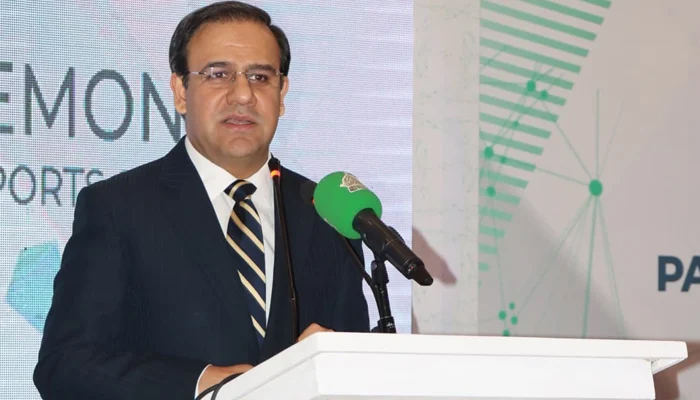Pakistan can learn from peers to boost startup ecosystem: OICCI report
LAHORE: Pakistan has the potential to develop a thriving startup ecosystem, but it needs to learn from the experiences of several peer countries that have successfully overcome hurdles, according to a report by the Overseas Investors Chamber of Commerce and Industry (OICCI).
The report, titled “Promoting Start-up Ecosystem in Pakistan - OICCI's Prospective”, identifies the key challenges and opportunities for Pakistani startups, and offers recommendations on how to improve the enabling environment for them.
The report says that Pakistani policymakers can adapt and implement best practices from countries such as Rwanda, Chile, and Kenya, which have created conducive conditions for startups to flourish.
"The OICCI does not recommend simply copying another country's model as that may not be effective. Instead, we can learn from ... examples, tailor ... ideas to Pakistan's specific context and challenges, and then move forward with the implementation," it said.
Abdul Aleem, secretary general of OICCI, in a letter to Dr. Umar Saif, minister for IT, shared the contents of the report, saying that the startup ecosystem in Pakistan is an emerging and promising one, with a large and young population, a growing middle class, and improving digital infrastructure.
However, it also faces many challenges, such as limited access to funding, regulatory and operational hurdles, and shortage of talent and skills.
"Startups in Pakistan especially struggle to raise capital from both local and foreign investors, due to the low level of venture capital activity, absence of a robust angel investor network, limited seed funding options, economic downturn, political instability, and negative perception of the country’s security situation," it added.
"This scarcity of funding is felt significantly at the early stage (ideation and seed) and poses a significant hurdle for startups. Besides hindering the growth and scalability of the businesses, this is also resulting in project delays or even cancellations."
Startups in Pakistan have to deal with complex and cumbersome procedures for registering, licensing, and taxing their businesses, as well as complying with various laws and regulations that may hinder their innovation and growth. The prevalence of outdated administrative hurdles in establishing businesses and the complex Intellectual Property Rights (IPR) procedures required to achieve a patent are among the primary hurdles faced by Pakistan's startup ecosystem.
The positive thing about Pakistan is that over 60 percent of its population is below the age of 35, with over 25,000 IT and engineering graduates annually, making it a fertile ground for cultivating a thriving startup ecosystem. However, there exists a considerable disparity between the skills taught in the educational institutions and the practical necessities of managing a business.
Many schools and universities in the country favor a traditional rote-learning method, which discourages critical thinking, creativity, and problem- solving abilities – crucial qualities for aspiring entrepreneurs. This mismatch contributes to a shortage of competent and well-informed entrepreneurs and employees, especially in the fields of technology, engineering, and management.
Infrastructure limitations, including unstable electricity supply, inadequate technological infrastructure, and limited access to resources, can impede the development and operations of startups. Suboptimal training curricula, insufficient networking opportunities for early-stage startups, and a lack of dedicated attention to the needs of startups operating in a specific niche also impede the growth of startups.
A collective approach, led by the government and implemented by the private sector, can help Pakistan reap its potential in the IT sector. For this purpose, the government needs to ensure access to capital, helping startups connect with potential investors, such as angel networks, venture funds, or crowdfunding platforms.
-
 King Hospitalized In Spain, Royal Family Confirms
King Hospitalized In Spain, Royal Family Confirms -
 Japan Launches AI Robot Monk To Offer Spiritual Guidance
Japan Launches AI Robot Monk To Offer Spiritual Guidance -
 Japan Plans Missile Deployment Near Taiwan By 2031 Amid Growing Regional Tensions
Japan Plans Missile Deployment Near Taiwan By 2031 Amid Growing Regional Tensions -
 Meghan Markle, Prince Harry Spark Reactions With Latest Announcement
Meghan Markle, Prince Harry Spark Reactions With Latest Announcement -
 Kate Hudson Reflects On Handling Award Season With No Expectations
Kate Hudson Reflects On Handling Award Season With No Expectations -
 6 Celebrities Who Have Been Vocal About Anxiety And 'panic Attacks'
6 Celebrities Who Have Been Vocal About Anxiety And 'panic Attacks' -
 Is This The Future Of Train Travel? Robot Dogs, Drones Are Redefining Public Transit Safety Through China’s New Metro Station Deployment
Is This The Future Of Train Travel? Robot Dogs, Drones Are Redefining Public Transit Safety Through China’s New Metro Station Deployment -
 Sarah Ferguson Seeks Hollywood Backing As Epstein Files Resurface
Sarah Ferguson Seeks Hollywood Backing As Epstein Files Resurface -
 China’s AI Milestone: ByteDance’s Doubao Chatbot Hits 100M Users During Lunar New Year
China’s AI Milestone: ByteDance’s Doubao Chatbot Hits 100M Users During Lunar New Year -
 Think You Know ChatGPT? Here Are 5 AI Levels You’ve Never Seen
Think You Know ChatGPT? Here Are 5 AI Levels You’ve Never Seen -
 Bitcoin Bounces From $62,000 As On-chain Metrics Signal Prolonged Weakness: Here Is Everything To Know
Bitcoin Bounces From $62,000 As On-chain Metrics Signal Prolonged Weakness: Here Is Everything To Know -
 Elon Musk Teases Official Grok CLI For Developers As AI Rivalry With Anthropic Heats Up
Elon Musk Teases Official Grok CLI For Developers As AI Rivalry With Anthropic Heats Up -
 Jennifer Aniston Ready To Walk Down The Aisle Again?
Jennifer Aniston Ready To Walk Down The Aisle Again? -
 Sarah Ferguson’s Plan Now That Andrew Is Thrown Into The Fire: ‘She’s Not Certain She’ll Come Out The Other Side’
Sarah Ferguson’s Plan Now That Andrew Is Thrown Into The Fire: ‘She’s Not Certain She’ll Come Out The Other Side’ -
 ‘The AI Doc’: What AI Leaders Told Daniel Roher Will Keep You Up At Night
‘The AI Doc’: What AI Leaders Told Daniel Roher Will Keep You Up At Night -
 Sarah Ferguson In Hiding As Arrest Fears Grow After Andrew Was Taken Into Custody
Sarah Ferguson In Hiding As Arrest Fears Grow After Andrew Was Taken Into Custody




